Why Do I Owe Taxes This Year? 10 Reasons To Spot
Inside: This guide will teach you everything you need to know about why do I owe taxes this year. It’s tax season, which means it’s time to start thinking about your taxes.
If you’re like most people, you dread tax season. You don’t know why you owe taxes this year, and the paperwork seems endless.
But there are some reasons why you may owe taxes this year.
Paying taxes is a part of any government system.
So, don’t shy away from taxes.
Learn why I owe taxes this year and what to do about it.
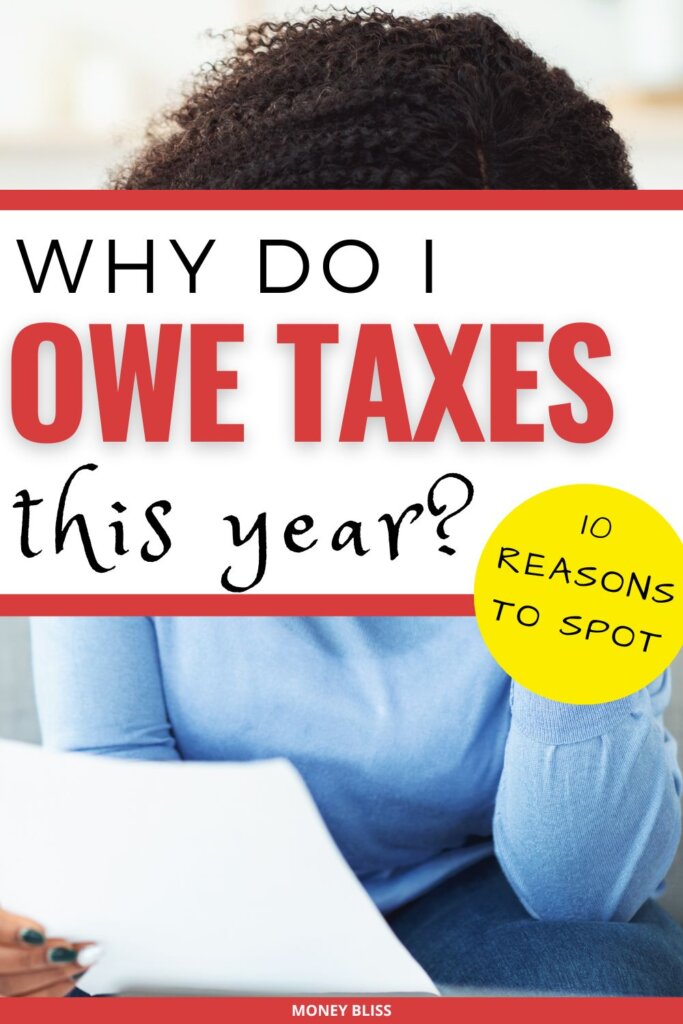
This post may contain affiliate links, which helps us to continue providing relevant content and we receive a small commission at no cost to you. As an Amazon Associate, I earn from qualifying purchases. Please read the full disclosure here.
How much do you have to earn to owe taxes?
When it comes to owing taxes, it boils down to how much income you’re earning and whether or not you’re withholding enough taxes from it.
Generally, the more annual income you make, the more taxes you’ll owe.
This is especially true if the income doesn’t have tax withheld from it, such as when you sell shares on the stock market or work freelance gigs. Self-employed individuals also typically pay their taxes this way.
TurboTax® is the #1 best-selling tax preparation software to file taxes online. Easily file federal and state income tax returns with 100% accuracy.
This is how I have filed my personal taxes for many years.
What if my tax Withholding was too Much?

On the other hand, if you pay too much in taxes, you won’t get any interest back from the government.
This means that you’re essentially giving the government a loan with no return.
This is why it’s important to have enough money withheld from your paycheck to ensure that you’re not overpaying the IRS.
Basic Takeaways on Paying Taxes
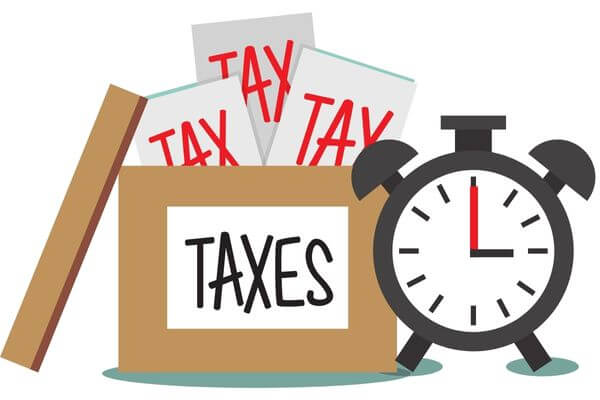
The best strategy is breaking even, owing the IRS an amount you can easily pay, or getting a small refund.
This way, you’re able to maximize your take-home pay and have more control over your money, while still meeting your tax obligation and avoiding underpayment penalties.
Owing more than $1,000 in taxes can also result in a tax penalty, so it’s important to ensure that you’re paying enough.
Overall, owing taxes to the IRS is inevitable; however, it’s important to ensure that you’re not overpaying or underpaying.
Planning your taxes properly and incorporating check-ups throughout the year can help you get as close as possible to breaking even and avoid tax penalties.

Lower Your Taxes - BIG TIME!
Wealth Building and Tax Reduction Secrets from an IRS Insider
The ninth edition shows you how to save thousands of dollars―legally and ethically!―during tax time.
It offers proven methods for taking advantage of the tax system to get a yearly subsidy of $5,000 or more back from the IRS―and bulletproof your records forever.

Tax-Free Wealth:
How to Build Massive Wealth by Permanently Lowering Your Taxes
For U.S. taxpayers, you will find helpful tips in this new edition to help you apply the new tax incentives to your situation.
Tax breaks are not only for the rich. It is for everybody! You just have to take time and learn it.
What are the reasons for which you may owe taxes this year?
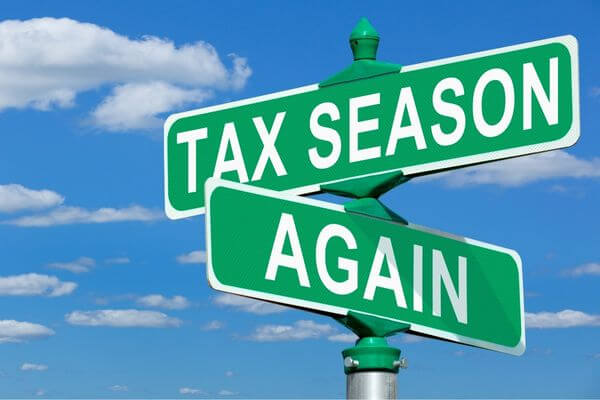
There are many reasons you may owe this year. Your situation will vary from the person next to you.
Here are seven common reasons people end up owing more to the IRS than they thought.
1. Incorrect Withholding on Job
As a W-2 employee, you will have taxes taken out based on your deductions. But, were the number of deductions you claimed correct?
The main reason for owing taxes this year is due to incorrect deductions that you may have claimed on your W-4 form.
Yep, this has happened to us. Sigh.
This form is given to you when you start your job, but you can modify it at any time through your Human Resources Department.
Learn how to file your taxes without w2.
2. Side Hustle

As the gig economy continues to grow, more taxpayers are finding themselves in a situation where they owe a larger tax bill than usual. This is especially true for those who have taken on how to make money online.
This happened to my friend when she launched her fitness coaching and was clueless about needing to pay taxes on that income.
According to the IRS, if you earn $400 or more from self-employment, side gigs, or part-time or temporary work, you need to file a tax return.
It’s important to remember that the amount of tax you owe increases the more money you earn – especially if it’s a type of income that doesn’t have tax withheld from it.
However, taxpayers are still obligated to report their full income on their tax returns, whether they’ve received a 1099 form or not.
3. Self-Employed Status
Self-employed individuals must be sure to set aside enough money for taxes throughout the year, as there is no one deducting taxes from their pay.
For those who are self-employed, it is recommended to estimate and make quarterly tax payments to avoid incurring a large bill or penalties at the end of the year. Learn how to pay quarterly taxes.
Additionally, consider opening another bank account dedicated to taxes, and transferring the appropriate amount to it every month from the business checking account. Personally, I follow the Profit First Formula.
By staying aware and on top of self-employment taxes, business owners can avoid any issues or penalties down the line.
4. Self-Employment Tax
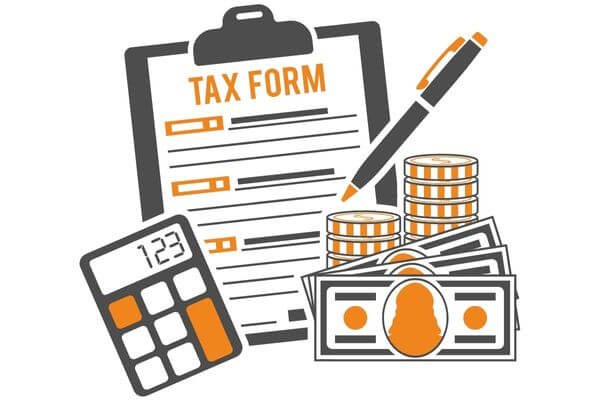
The self-employment tax is a tax that self-employed individuals must pay to cover their Social Security and Medicare taxes. This tax is separate from any regular income tax that you may owe.
The self-employment tax is divided into two parts:
- 12.4% for Social Security
- 2.9% for Medicare
As a self-employed individual, you are responsible for paying the employee and employer side of this tax. As a W2 employee, your employer pays half of your FICA taxes for you.
Typically, the self-employment tax is filed on your Schedule C.
Therefore, they must make estimated tax payments quarterly to pay the full amount due (income taxes and self-employment taxes) to the IRS.
5. Got Married?
Getting married can have a significant impact on the amount of taxes you owe.
When you file a joint tax return, your income is combined with your spouse’s and you may be taxed at a higher rate than when you were single.
Additionally, your standard deduction will increase, but depending on your income, you may be hit with the marriage tax penalty, meaning you and your spouse pay more taxes as a couple than if you were filing as singles.
6. Kids? Child Tax Credit and Child Tax Deductions

Having dependents can also affect how much you owe. Such as having a baby, adopting, or adding older children to your family can also impact your eligibility for various types of credits and deductions.
To qualify for the Child Tax Credit, your child must have been under the age of 18 at the end of the year. If they no longer qualify, you no longer can get the Credit, which can lead to a significant drop in your bottom line.
That is one of the tax deductions that come with the expense of kids.
Here are some of the other tax credits available for families (as such each comes with its own rules):
- Child Tax Credit increased with the Tax Cuts and Jobs Act of 2017. In 2022, the child tax credit is worth up to $2,000 per qualifying dependent under the age of 17.
- Child and Dependent Care Credit changed due to the American Rescue Plan Act. You can claim up to 20-35% of care expenses
- Earned Income Tax Credit is for low-to-moderate income earners. The recommendation is all filers explore their eligibility for receiving the EITC each year as so many variables can impact your eligibility.
The expiration of some tax break enhancements from the previous tax years may cause you to owe taxes this year.
7. Change of Jobs
A change of jobs can have significant tax implications, especially if your income changes as a result.
- If you move to a higher-paying job, you may find yourself in a higher tax bracket and owing more come tax season.
- Even if your salary decreases due to a move, you may still end up owing more due to income from multiple employers or unemployment.
It’s important to take all of this into account when changing jobs and to file an updated Form W-4 with your employer to avoid any surprises come tax time.
8. Captial Gains Tax on Stock or Crypto

Did you join the stock market or crypto craze? Or even back away from it?
Taxes on stock gains or cryptocurrency can be a daunting prospect for many investors.
Capital gains tax is a type of tax levied on profits made from investments, such as stocks, cryptocurrency, mutual funds, and exchange-traded funds (ETFs).
- When you sell investments (stocks, mutual funds, crypto, or ETFs) in a non-retirement account and realize a profit, you could be subject to capital gains taxes.
- Your taxes will be based on the difference between your basis (purchase price, adjusted) and the proceeds from the sale. The amount you’re taxed will be based upon how long you have held the investment before selling it and your total income for the year.
- Long-term capital gains, which are profits from assets held for more than a year, are taxed at 0%, 15% or 20% at the federal level depending on your taxable income and filing status.
- Short-term capital gains, or profits from assets held for less than a year, are taxed as ordinary income.
However, there are exceptions to having to pay capital gains taxes such as when your capital losses equal or exceed your capital gains. This means that you will not owe any capital gains tax on your stocks or cryptocurrency sold at a gain if you have losses.
This is why it’s important to be aware of your capital gains tax this year and take steps to minimize your tax bill, such as selling losing stocks in order to offset your capital gains.
9. Itemized Deductions
Itemized deductions are a way for taxpayers to deduct certain specific expenses from their taxable income when they file their taxes.
This means they can subtract the amount of the expense from the total amount of income they earned over the year, thereby reducing the amount of taxable income and their tax liability.
These expenses can include charitable donations, medical and dental expenses, state and local taxes, home mortgage interest, and unreimbursed job-related expenses.
However, some itemized deductions must be over the standard personal exemption amount to qualify.
Learn the itemizing requirements for your situation.
10. Changes in Tax Code
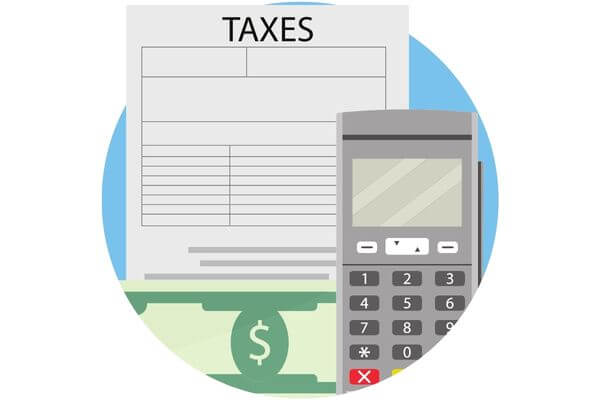
Changes in the tax code are another common reason for owing taxes.
These are ever-changing and happen continually.
You need to be aware of how new registration passes and tax law changes will affect you.
Possible Changes in Tax Code include:
- Tax Brackets
- Tax Rates
- Personal Exemption amount
- Changes in what is allowed for personal deductions.
Learn how to file taxes with no income.
How has the pandemic affected my taxes?

The coronavirus pandemic has had a drastic effect on the way taxes are filed for the 2020-2021 tax years.
Many tax credits and deductions that were increased during the pandemic are now reverting back to their pre-pandemic amounts, such as stimulus payments, deductions for charitable donations without itemizing, the earned income credit, the dependent care credit, and the child tax credit.
This means that taxpayers could expect less in refunds this year, as well as potential changes to their tax return depending on their personal situation.
Why do I owe taxes this year when nothing changed?

When it comes to taxes, even minor changes in your tax situation can lead to owing taxes when nothing changes.
This could include changes in filing status, income, deductions, and credits.
In addition, the tax code is always changing, so something outside of your control can cause you to owe taxes when it seems like nothing has changed for you personally.
Why do I owe state taxes?

Just like federal taxes, you must file state taxes.
However, the tax rates vary from state to state.
Thus, many HCOL areas are the higher taxed states and LCOL have zero state taxes.
Also, consider many states offer deductions that are disallowed at the federal level. So, you need to check your state statutes and the tax code.
FAQ
Do I Owe Taxes?

That will 100% depend on your personal situation.
If you find yourself owing taxes this year, don’t panic.
There are several reasons why this could happen, and most of them are fixable. Just be sure to file your taxes correctly and use a reliable tax calculator, like Turbo Tax, to estimate your taxes owed.
Consequently, it is important to consider any changes to your life, such as starting a new job, getting married, or adding dependents, that may impact the amount of taxes you owe.
These changes may lead to a higher or lower tax bill, depending on your specific situation, so it is important to understand how your tax situation may be affected.
Also, it is important to stay informed of any changes that might affect your taxes so you can be better prepared in the future.
Did the post resonate with you?
More importantly, did I answer the questions you have about this topic? Let me know in the comments if I can help in some other way!
Your comments are not just welcomed; they’re an integral part of our community. Let’s continue the conversation and explore how these ideas align with your journey towards Money Bliss.



